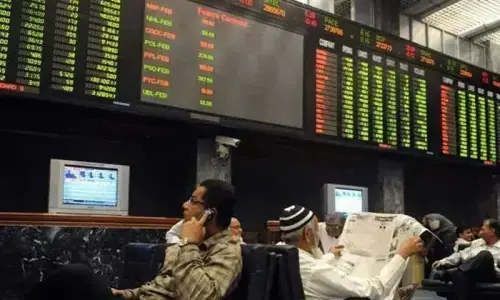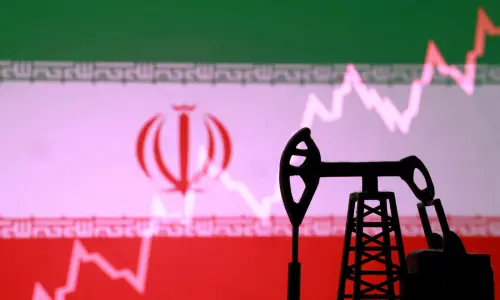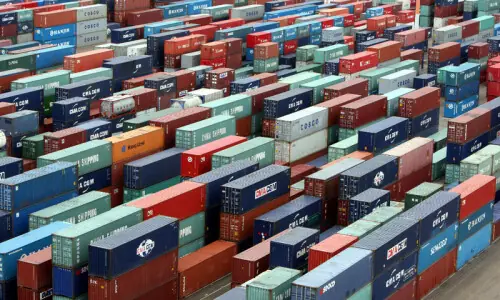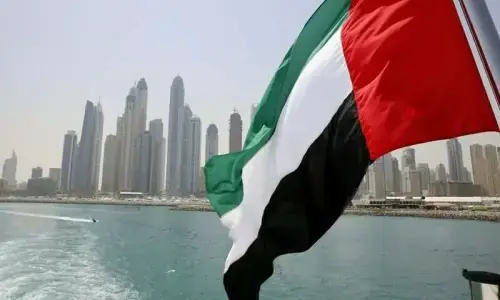PAKISTAN has been undergoing a digital shift for some years now which has changed the way people shop, pay bills, order cabs, buy cinema tickets, book hotels, do grocery shopping and dine outside.
Though the country’s economy still remains largely cash-dependent, the use of mobile devices and cellphone apps for making payments is increasing because of their security, speed and convenience.
Even small retail businesses that used to accept only cash earlier now appear inclined to shift to electronic payment methods. However, they set card minimums and charge a fee of up to three per cent on each credit or debit card swipe to square up the high cost charged by issuers (banks, etc) and digital payment companies like Mastercard and Visa.
Large merchants, however, hide this cost in their prices or choose to share it from their profits in order to maximise their sales. Apart from increased acceptance of credit and debit cards by merchants, the use of quick response (QR) payments in the country has gone up at a fast pace.
Over 50,000 merchants across the country accept QR payments and Pakistan, according to Mastercard, was the leader among its 30 live QR-enabled markets around the globe with the most transactions conducted using the technology in 2017.
“The conversion (from cash-based payments to electronic payments) helps governments improve delivery of social benefits, combat corruption and fraud, and securely disburse payments,” says Sarah Quinlain, head of Mastercard market insights
Why is it important for a country like Pakistan to shift towards a less cash-based economy by encouraging mobile payments?
“Digitisation of an economy is crucial to make an economy like Pakistan transparent and visible.
“And this is the key thing, right? The more transparent the economy is the more people will participate in it,” Sarah Quinlan, senior vice president and head of Mastercard market insights, tells this correspondent.
“It also reduces the cost of transactions and accelerates gross domestic product growth as it keeps money moving in a given economy. Additionally, it lowers the cost of cash (which is said to be almost three per cent of GDP of a given economy) and increases financial inclusion, tax collection, and so on.”
In spite of the increasing use of mobile payments, the change is more perceptible in major cities. The use of mobile payments, according to bankers, is slowly catching up in smaller cities and towns.
Yet, the speed of the conversion towards a less cash-based economy is very slow because the majority of the people remain outside the banking system. Around 100 million people in the country are said to be unbanked.
Mobile penetration is the key factor to speed up the shift towards a less cash-based economy in countries like Pakistan, added Ms Quinlan. “Almost everyone has a mobile phone, so that will play a crucial role in moving towards digitisation of the economy... It’s a very exciting thing. Then, adoption of QR code payment method — the most likable and easy payment system in a market like Pakistan — should also help quicken the conversion.
“But the key question is that the change cannot be brought about in a vacuum. You need the support from the issuers. We also need governments to support (the movement towards a less cash economy). If we leave governments out, it won’t happen.
“The governments in developing economies must encourage mobile payments (of its taxes, fees and bills) and make it cheaper to pay digitally by offering discounts. That way you can move faster in that direction. The key thing is that the conversion (from cash-based payments to electronic payments) helps governments improve delivery of social benefits, combat corruption and fraud, and securely disburse payments.”
Ms Quinlan also has advice for small businesses: “By shifting to a digital payment system, small entrepreneurs can create a very transparent chain of transactions that helps lenders understand the robustness of their business and increase their access to finance, which is critical for them to grow bigger.”
Published in Dawn, The Business and Finance Weekly, August 6th, 2018




























